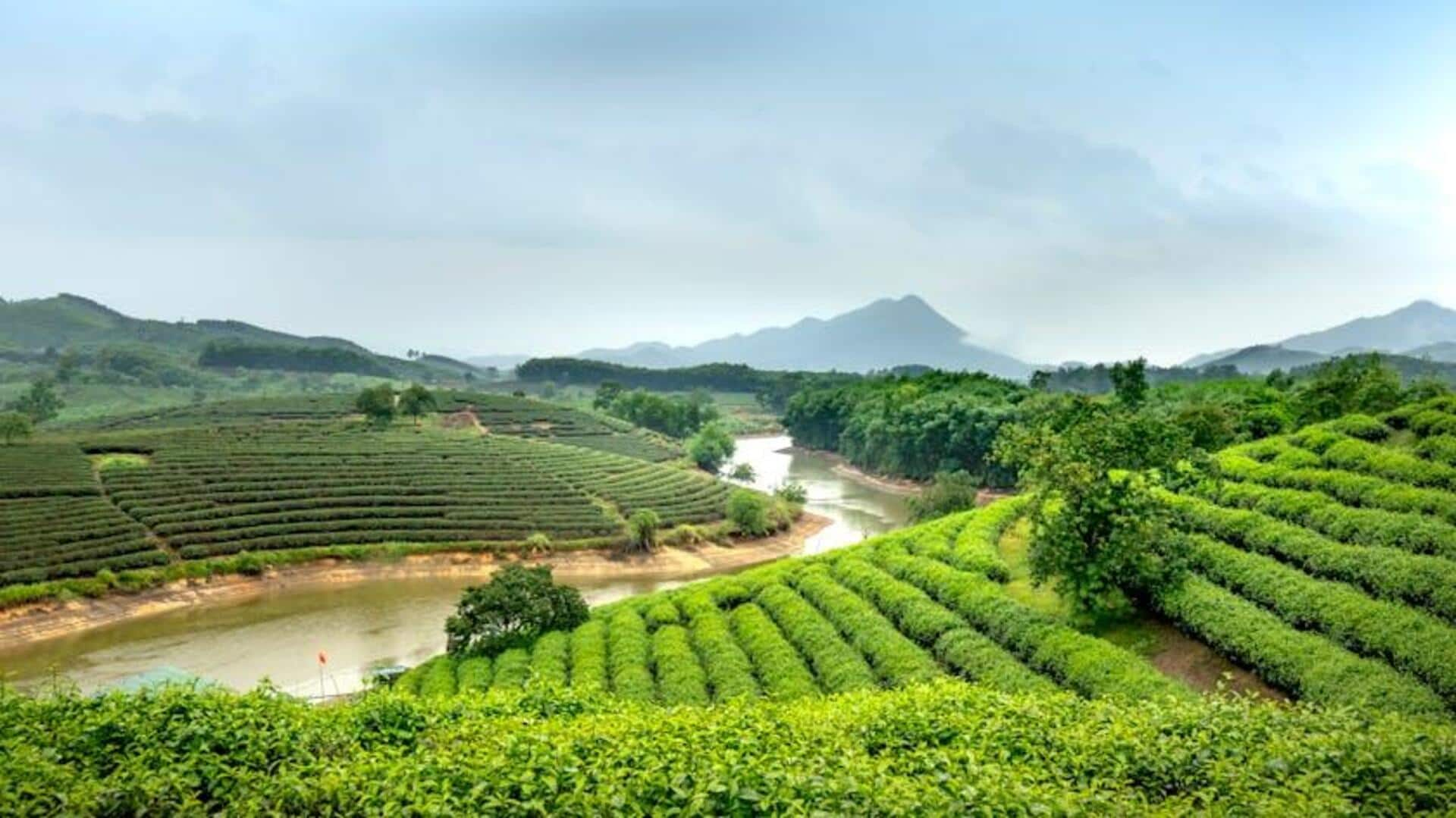
Must-see tea plantations around the world
What's the story
Tea plantation tours are a blend of tradition and tranquility, where you can explore the rich history and serene landscapes where tea is cultivated. You get to witness the intricate process of tea production, from plucking leaves to brewing the perfect cup. Whether you're a tea enthusiast or just looking to get away, these tours will let you connect with nature and learn about one of the world's most beloved beverages.
Assam tour
Exploring Assam's lush plantations
Assam, famous for its strong black teas, has sprawling plantations that cover the greenest of greens. You can see how tea is cultivated and processed the traditional way, all while enjoying guided walks through the estates. The region's peculiar climate gives it a distinct flavor, making it an absolute must-visit for anyone wanting to know how environment dictates taste.
Darjeeling tour
Darjeeling's scenic tea gardens
Darjeeling is famous for its beautiful teas with subtle flavors and floral notes. The beautiful gardens are located against rolling hills and misty mountains. Tours here usually include visits to historic estates where you can see skilled workers hand-plucking leaves. The elevation of this region contributes significantly to its teas being highly coveted across the globe.
Sri Lanka tour
Sri Lanka's Ceylon Tea Experience
Sri Lanka gives an immersive insight into Ceylon tea production, all set in stunning landscapes. The island's central highlands is littered with countless plantations, where one can learn about the different varieties of Ceylon tea. Guided tours usually include tastings, which emphasize the wide range of flavors produced due to different altitudes and soil conditions.
Japan tour
Japan's traditional tea culture
Japan gives you an opportunity to discover its rich tea culture with a visit to traditional green tea plantations. These tours often incorporate elements of Japanese customs such as tea ceremonies, giving you an insight into both the cultivation techniques and cultural significance. The meticulous care taken to grow Japanese teas makes their tastes stand out, reflecting centuries-old practices.